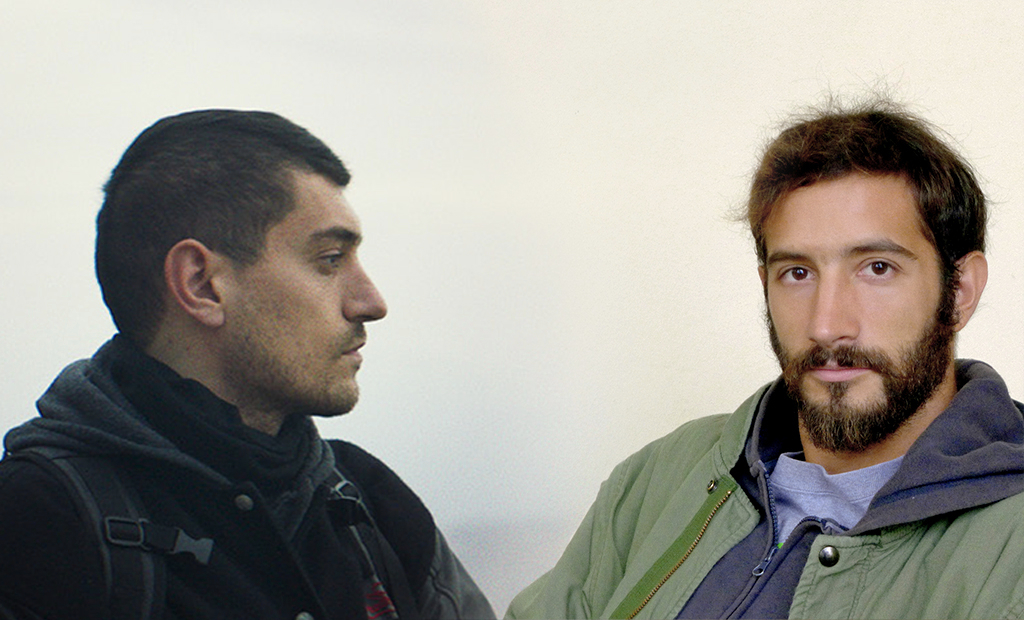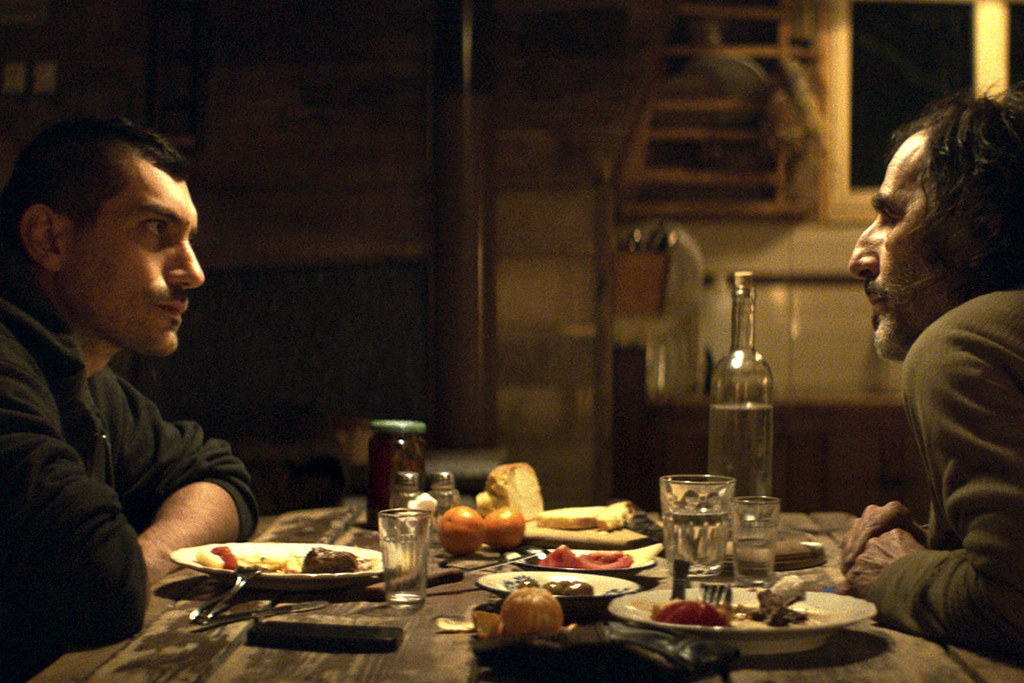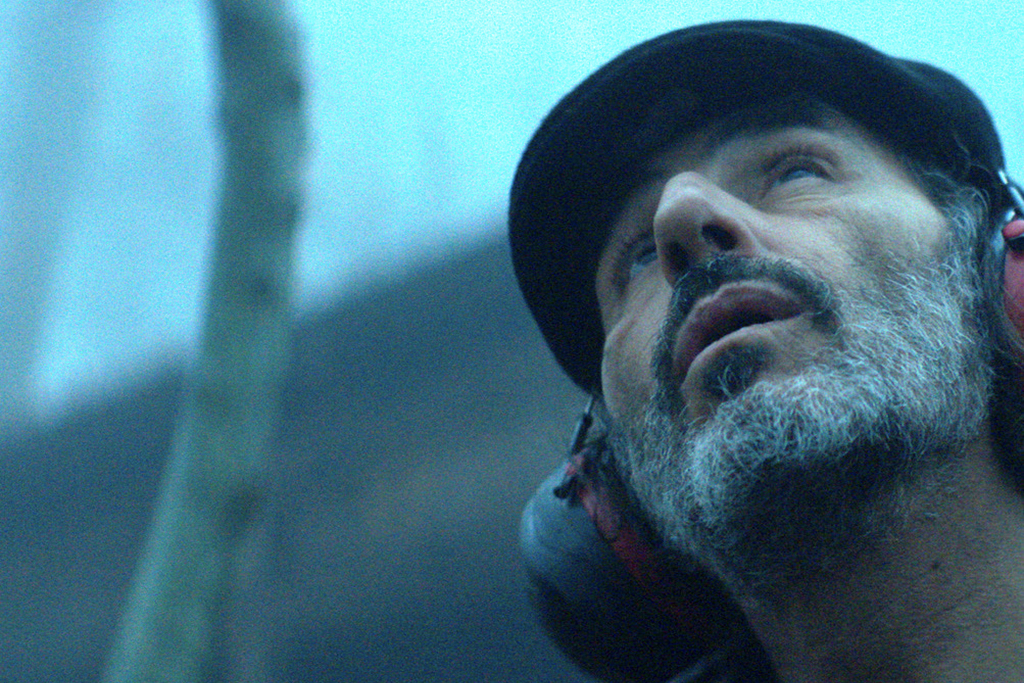“The film is my process of accepting my father”: An interview with Digger director Georgis Grigorakis and actor Argyris Pandazaras

Georgis Grigorakis’s feature film debut Digger celebrated its world premiere this month in the Panorama section of the Berlinale. Primarily, it is a film about reconnecting to one’s roots. The Greek director and his young leading actor Argyris Pandazaras were happy to return to screen the film in Berlin – a city of special significance to its development, as they share with us.
How does it feel that your very first film made it into the Berlinale?
Georgis Grigorakis: It is really a dream and an honour. The new direction of the festival has such a strong and selective programme this year. It is also particularly special to me because we started developing the script here, five years ago, under the Nipkow fellowship programme. This is where we began, and now we are presenting the film, completing this five year journey. From Berlin to Berlin: coming full circle. We are very happy about it!
The credits list your main actor, Vangelis Mourikis, as having contributed to the film’s story. I am curious about this collaboration. Was the story written with him in mind?
GG: Yes, exactly. The story started with his character. Vangelis has been a collaborator and friend of mine for years and I had him in mind from the very beginning. We’ve done three short films together. He is, for me, the best cinematic actor in Greece. The script was written for him and without him, there wouldn’t be a film. He is the heart of Digger.
How was the process of developing the story with him?
GG: Initially I started collaborating with Maria Votti, a writer based here in Berlin. We went back to Athens and once we cast the son, we started workshopping together with Vangelis. He has a lot of experience and likes to get involved in the process. He invests a lot in the films that he does. For me as a director, writing provides me with ways to dig into my material better, to fully understand it. It is similar for Vangelis: through collaborating in the writing he finds out more about the character and what the film is about.
How did you [Pandazaras] get involved in this production?
Argyris Pandazaras: I knew Georgis from his films, even before we met, and was impressed with his work. He is a director who cares about human beings and human behaviour, not only ideas, as many working directors do. We had friends in common and we finally met each other for this project. We realised that we like each other, that we respect one another and we admire each other’s work. We met each other as humans first, and then as professionals. We did some tests, exercises together. I loved that period. For three months, I went to read, do camera tests, tried out the motorcycle in the mountains of Athens, with Vangelis. I quit theatre for two years to concentrate on this project. I had to unlearn some of my theatrical education and start to discover a cinematic approach. I came here to Berlin, had a personal workshop, where I was coached in film acting. Then I went back to Greece and learned how to ride a bike through dirt, I bought two bikes, I went to an engineer.
Did you work with improvisation?
GG: We workshopped the scenes in rehearsals. Some dialogue was scripted very specifically and that was the way it was shot. But there were also scenes that were completely improvised, because an idea or inspiration came on set, either from the actors or from me or the location or situation. There is a scene in the film, for instance, in which Vangelis picks up a chicken and starts talking to it. He is a great actor with the impulse and ability to create a scene out of anything. So in a way, we experimented and wanted to be open to different styles. We incorporated something very structured but also left space to be creative on set.
What was it about this story that moved you personally? Are there autobiographic elements to it?
GG: It is my relationship with my father, in a sense. A father figure is always like a god when you’re a child. Then you learn that he is human and has made mistakes in his life. You have to forgive him. This film is my process of accepting my father as a human being. In the narrative of the dramaturgy, we raised the stakes: we created characters that were never together. We put more obstacles in their way so they have a more interesting journey to find each other.
The other main theme of the film is the struggle between making ends meet and refusing to sell out our natural resources. This is a very current problem. It is an issue we are facing as a planet now. We know we have these resources stored for billions of years and we have been using them, up to a point, in balance with nature. Now the system has become so greedy, it eats up everything, it has become a system of exploitation. The relationship between humans and nature is one of imbalance. It cannot go on like that.
I saw this very interesting poster at the train station last night: “The environmental crisis is the next Berlin wall”. It has divided society, it is about those who go on with this greedy pattern and the rest who have had enough. We have enough technology and knowledge now to start finding alternative ways of approaching things. We don’t need to go back to the caves, we can maintain our lifestyle but more in balance with what we have and with each other. I think there is a correlation between our relationship with each other and the relationship between humans and nature. We have an unfair system: the foundation of the system promotes inequality, and you have people who want to work under the system. This creates civil wars and conflicts within societies. It is a system that doesn’t create a common ground. The system doesn’t provide a good foundation. So now in the film these characters, father and son, are digging to build a foundation for their relationship.
You [Pandazaras] really committed to the film.
AP: It seems like method acting. But this alone is not enough. I came to realise that in order to do this film, it was not about being a good actor. What it came down to was being honest. Being human first. The most difficult part was to find my real scenario. Not the movie script. My real scenario is to find my father in his house. Find my real father in his real house and to listen to him, understand him, accept him and forgive. From this moment I understood what film I was going to shoot.
There is little information in the film about Johnny before he appears in Nikitas’s life. When you were developing your character, was there a backstory that you worked with?
AP: Yes, I had a backstory but I don’t think that was the essence. The real battle for me as an actor was about meeting him and interacting with him, not what story I bring. We create our story now, in the present. In this moment. In this film we tried to create moments, that form a new experience. It is about two worlds that meet, that collide.
Thank you both very much for sharing your thoughts!
Selina Sondermann
Digger does not have a UK release date yet. Read our review here.
Read more reviews from our Berlin Film Festival 2020 coverage here.
For further information about the event visit the Berlin Film Festival website here.
Watch a clip from Digger here:




















Facebook
Twitter
Instagram
YouTube
RSS